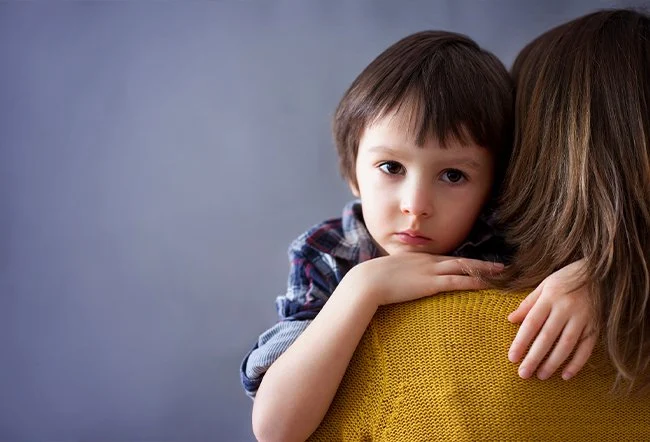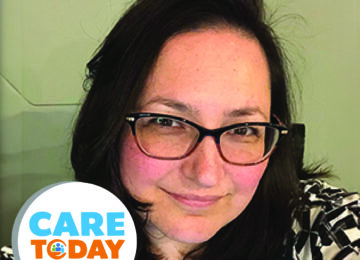Learning to Recognize and Support a Child Struggling with Anxiety

Anxiety is a natural response to ambiguity in life, even in childhood and adolescence. And while a bit of anxiety has been shown to help encourage motivation, many children and teens experience an unhealthy level of anxiety.
The Anxiety Disorders Association of America reports that anxiety disorders affect one in eight children. For these young people, persistent worrying can become a distressing part of every day.
An anxious child becomes overloaded with thoughts of “what-ifs” and worst-case scenarios. Unrelenting doubts and fears can drain energy, dramatically raise stress levels, and interfere with relationships and daily activities. Children’s anxiety can also have long-term effects, including trouble sleeping and eating, physical pains, and withdrawal from loved ones.
Some anxiety disorders tend to emerge at certain stages of development. Separation anxiety and specific phobias can be more common in children ages 6-9. Generalized anxiety disorder and social anxiety disorder may surface more often in middle childhood and adolescence. In the teen years, anxious young people often struggle simultaneously with depression.
Signs of Anxiety in Children
Parents can help their children by watching for potential signs of child or adolescent anxiety, such as:
- Consistent and excessive worry about school, friends, following rules, or approval of teachers and parents
- Physical complaints, including stomachaches, muscle tension, or fatigue with no medical cause
- Persistent or unreasonable fears and inability to stop worrying despite reassurances from others
- Sleep disturbances
- Low self-esteem and refusal to take risks
- Withdrawal from friends or family and distress over social situations with unfamiliar people
- Repeated “attacks” of sudden, intense fear or discomfort, which may include shortness of breath or a racing heart
How Parents Can Help an Anxious Child
If they believe a child or teenager is grappling with anxiety, parents should seek help from a mental health professional. A professional can teach children ways to manage their worries, provide support, address underlying issues contributing to anxiety, and suggest more effective ways to think and act in anxiety-producing situations. Medication may be part of the treatment, too.
Mental health professionals can also work with parents to help their children and teens manage their anxiety. For example, there are a variety of ways that parents can create a supportive atmosphere at home, including:
- Staying calm when your child becomes anxious
- Keeping a consistent routine is equally important
- Assuring that your child eats a healthy diet and gets regular exercise and adequate sleep
- Showing flexibility by modifying expectations of the child during stressful periods and by planning for transitions, even daily ones, such as preparing for school in the morning
- Helping your child assess and solve problems by talking out options and choosing the best one
- Recognizing small accomplishments on the path to controlling anxiety
The more parents understand anxiety’s symptoms, effects, and treatments, the better prepared they will be to guide their children toward managing this treatable condition.
JSSA’s Mental Health Services professionals are now accepting new clients, including youth struggling with anxiety. Call our mental health experts at 240-800-JSSA.
*Appointments can only be made up to two weeks in advance. Most major insurance plans accepted.


